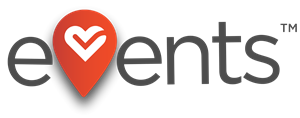Tips to Help You Write a Compelling Event Description

You've got less than five minutes to hook someone interested in attending your event. You want to keep them reading and hopefully convert them into attendees. We'll look at simple tricks to help you write better event descriptions.
What makes a good event description? How can you write one that grabs potential attendees' attention and turns them into attendees?

What Is an Event Description?
An event description is a copy that tells people why you are holding the event, who will speak, where it will take place, and what they will gain from attending. This is typically done on your website, social media pages, email marketing campaigns, and even ads. Event descriptions help to keep people engaged with your brand and ultimately increase attendee numbers.The best event descriptions provide clear information about the event without being overly promotional. They describe the key speakers, activities, and goals of the event, while still telling visitors why they should come along.
For example, a good event description might read something like this:
“We are hosting our annual conference to discuss how we can use AI to improve customer experience. Our keynote speaker will talk about his journey into the field and how he uses machine learning to make improvements every day. We will also feature case studies from companies that are already making great strides with artificial intelligence. Come join us for some food and drinks and learn how you too can benefit from AI.”
This type of description provides enough information for interested parties to decide whether or not they want to go to the event. It doesn't give away too much about the event itself, but it does explain why someone would want to attend.
Why Do Event Descriptions Matter?
Event descriptions are often overlooked, but they play a key role in the success of your event. They're one of the places where you can really tell your story, promote your brand, and build relationships. But most importantly, they help people find you online. An event description is no longer just a place to list the event name and date; it's a chance to stand out among thousands of others. If done correctly, your audience will know exactly why they should come to your event and bring along friends and family.Headline of description
The most important part of any event description is the headline. You're trying to capture someone's interest, so don't waste space on unnecessary fluff. A good rule of thumb is to keep your headline under 50 characters.What should be included in my event description?
You know you have written a great event description when people start asking about it. If you want to make sure that your attendees remember what the event was like, write a clear, concise description that includes everything they need to know.1. Use a strong hook to draw people in.
2. Tell visitors why they should attend your event.
3. Include key dates and times.
4. Describe the venue and location.
5. Provide contact information.
Share goals for the event
Before you start writing your event description, make it crystal clear exactly why you're holding the event. If you don't know, ask yourself why you want to hold the event. Is it because you want to bring attention to something important? Or is it because you want to raise money for charity? If you're hosting an event to raise money for a charity, you'll want to include information about how much money you hope to raise. You might also mention where the money will go once it reaches your organization. Knowing your goal will help you decide how to approach the event description.2. Write About What You Want People to Learn From Your Event
Next, think about what you want attendees to take away from the event. Do you want them to learn about a particular topic? Or do you just want them to come out and enjoy themselves? Whatever the case may be, figure out what you want people to learn from your event. Once you know what you want people to gain from attending, you'll be able to craft a compelling description that makes them want to attend.
3. Tell Them Why They Should Attend
This step requires you to think about the benefits your attendees will receive from attending your event. Are there certain skills they'll acquire? Will they meet new people? Will they find inspiration? Think about the things that will benefit them most from attending your event and include those ideas in your description.
4. Include Keywords In Your Description
Once you've written down everything you want attendees to learn and experience, use keywords throughout your description to ensure that your event appears high up in search results. For example, if you're hosting a fundraiser, you might say "fundraising," "donate," or "support." If you're running a conference, you might use terms like "conference," "presentation," or "speaker." Make sure you use the same words in your description that people will type into a search bar.
Understand your audience
When it comes to creating effective campaigns, understanding your customer base is one of the most important things. After all, if you don't know what people want, how are you supposed to sell anything to them? To learn about your customers' demographics, interests, behaviors, and attitudes, you'll need to understand where they gather online. You might think that social media sites like Facebook and Twitter are the places where your target audience spends most of their time, but there's much more to it than that.Marketing campaigns are often built around a specific demographic or set of demographics. But how do you know what those people want? What makes them tick? How do you find out where they gather online? These questions are important because it allows you to make better decisions about marketing strategies and product development. You can use tools like Facebook insights, Twitter analytics, and Google Analytics to learn more about your audience.

Use the correct voice and tone when typing out the description
Voice and tone are important components of copywriting. They help establish a brand identity and set expectations around what kind of experience customers can anticipate.For example, what kind of voice would you use for a beach festival? A playful one, perhaps? Or maybe a more serious one, if you want to make sure people know how important it is to protect our oceans.
Beach Festival Description #1
The National Parks & Recreation team invites you to join us for a fun day of sandcastle building competition at Georgia State Beach on Saturday, Sept. 7!
Beach Festival Description #2
The National Parks & Recreation team invites you to join us at Georgia State Beach on Saturday, Sept 7th to help raise awareness to protect our oceans. We have one Earth, help us take care of it.
Tell a story in your description
Everyone loves stories. Stories are fun and entertaining. They make us laugh, cry, think, and feel something. So why do we often fail to tell our story properly? We tend to overhype it, use too many adjectives, and even resort to hyperbole. This leads to a lot of people thinking that we're exaggerating. But what we're actually doing here is telling a story. And like any good story, it needs to start off with a beginning, middle, and end. Here are four tips to help you tell your story effectively.1. Start with a Beginning
The beginning sets the tone for everything else that follows. If you want people to take your story seriously, you have to start with a serious tone. People won't take you seriously if you come across as being flippant or sarcastic.
2. Use Simple Language
Don't use flowery language or overly complicated sentences. Keep things straightforward and avoid jargon. If the description is too long people might night make it through the whole thing.
3. Be Specific
Don't talk about "your product," "your brand," or "your industry." Talk about specific products, brands, and industries. Make sure to include numbers whenever possible.
Tips to organize your writing into bite-sized chunks
As we talked about keeping your description short works best for keeping your audience engaged. Here are some reminders to k1. Headlines are king. Use headlines to grab readers' attention. A good headline tells me what I'm about to read. It gives me the hook I need to hang onto every word.
2. Outline. Before you write, make sure you have a clear idea of where you're headed. An outline helps you think clearly about your topic and makes sure you don't miss important steps along the way.
3. Bullet Points. Bullets are great because they're compact. But they can also be used to break up long paragraphs. Just like bullets, headings work well for breaking up large blocks of text.
4. Don't use the same words twice. This is called redundancy. You'll notice that many writers repeat the same words throughout their blog post. When you find yourself repeating the same words again and again, try changing them up. For example, "I am" becomes "I am." Or, "the problem" becomes "the issue."
Consider these steps when writing your next event description to ensure you create a compelling description to turn potential event-goers into attendees. Event Promotion
 Your All-in-One Event Management Platform
Your All-in-One Event Management Platform
Host Events with Ease! Events.org's comprehensive event management platform makes it easy to optimize, automate and maximize your organization's entire charitable event calendar.Events.org Benefits:
✓ Simple, Affordable Pricing for Paid Events: $1 per Transaction!
✓ FREE Events are always FREE
✓ Host & Manage Any Event
✓ Dedicated Customer Support
✓ Branded Event & Donation Pages
✓ Donor and Contacts Management (CRM)
✓ Membership Management
✓ Conference Management
✓ Volunteer Management
BONUS: Free access to the iBid's Mobile Auction AutoPilot™ - This automation tool saves you time & stress while streamlining auction tasks. Manage auction items and payment processing, including express checkout & digital receipts!